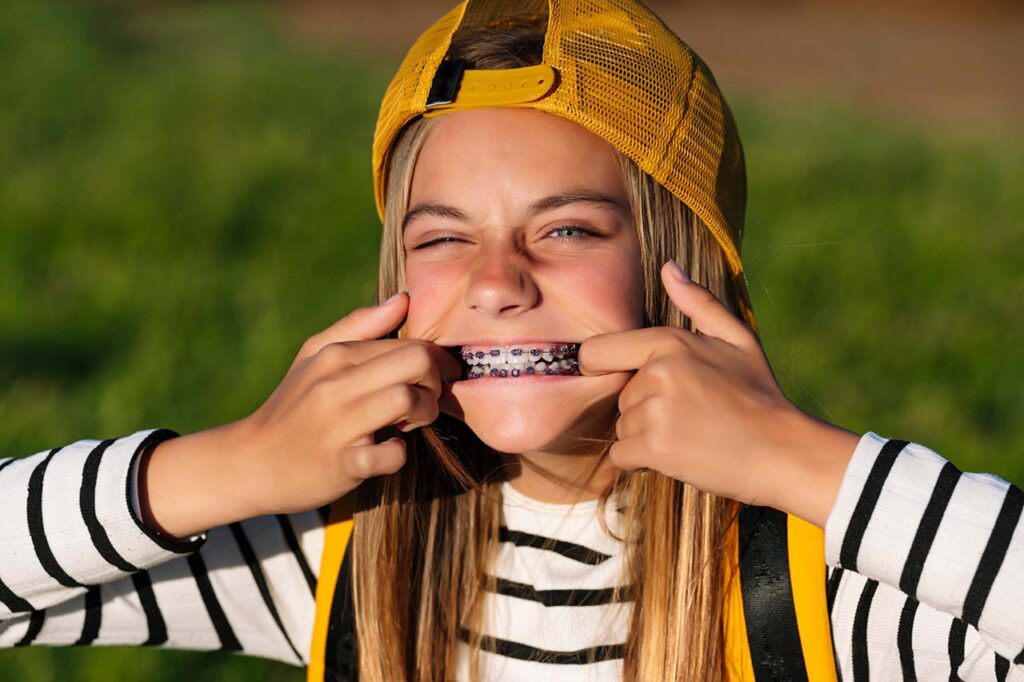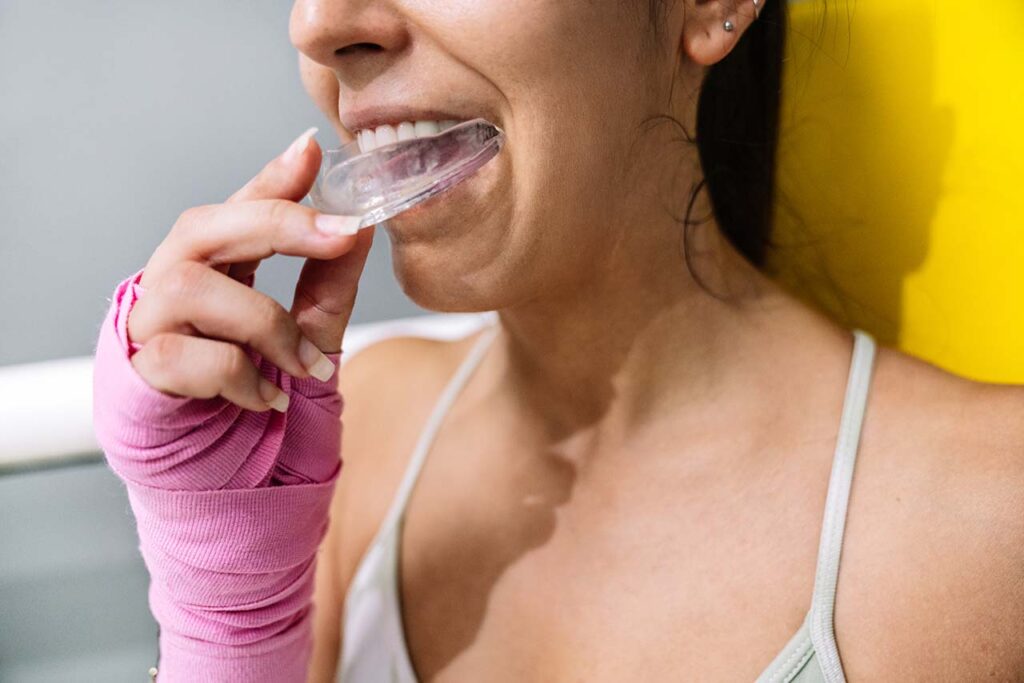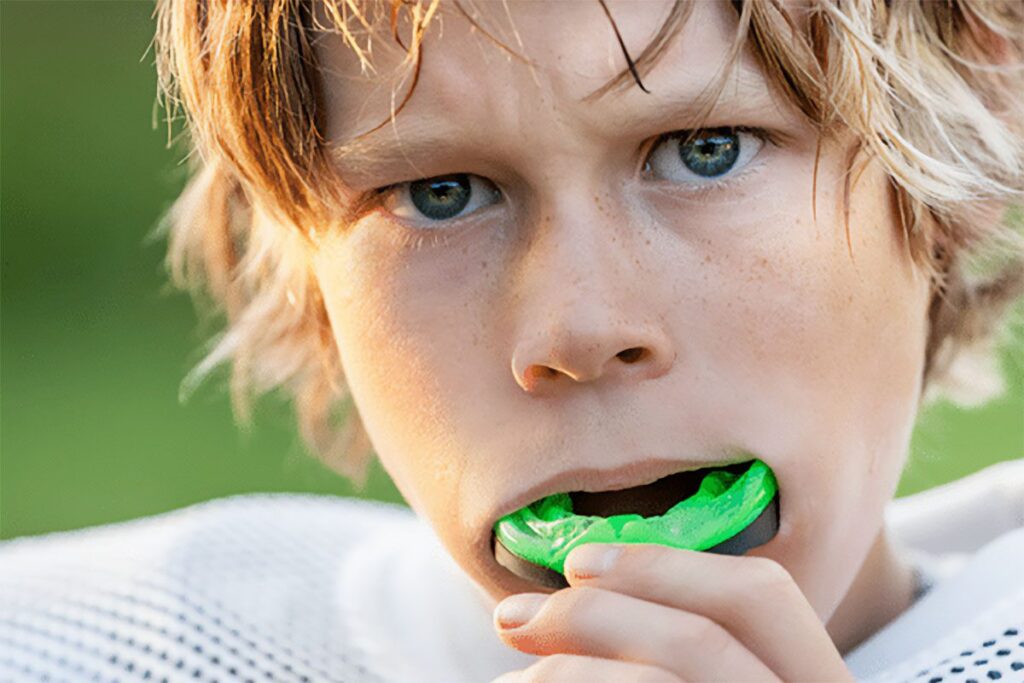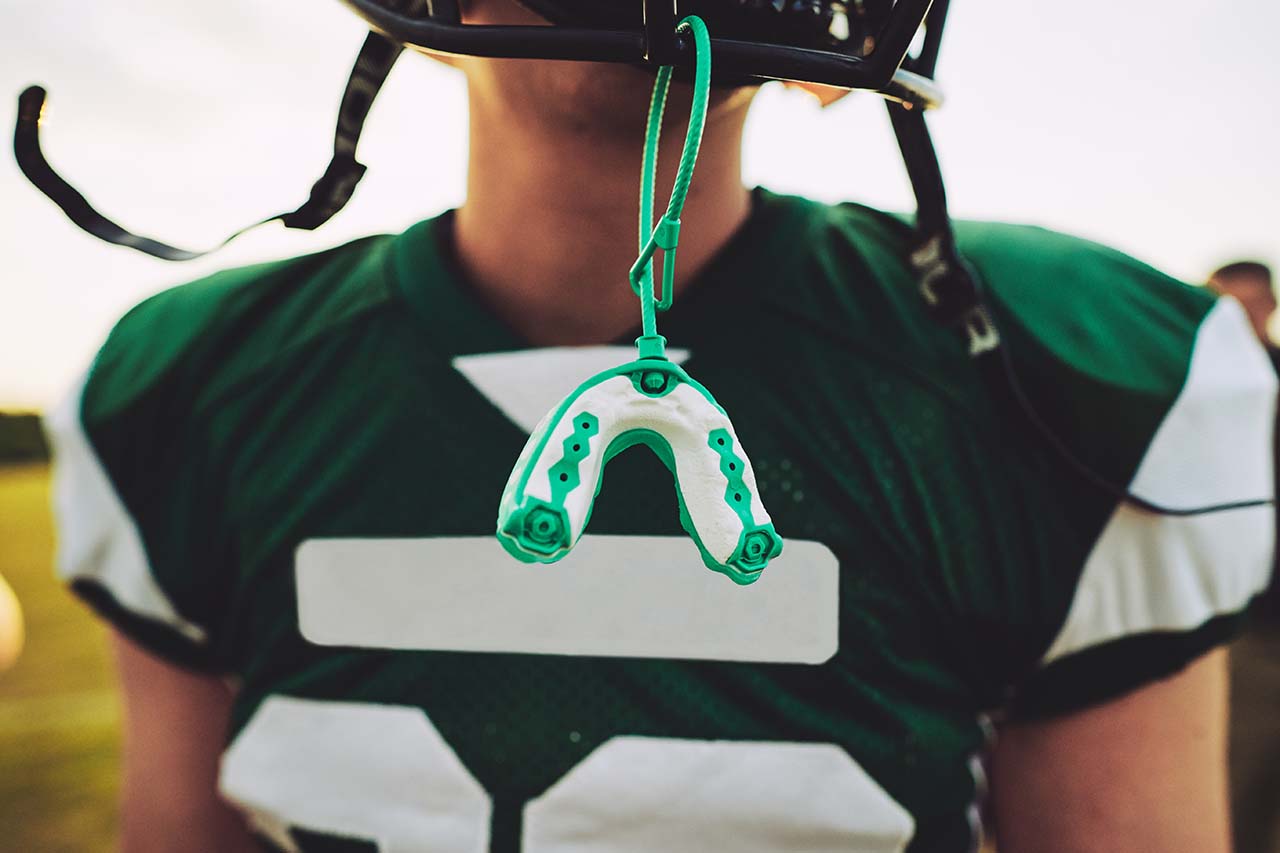Hey there, Sacramento sports fans! Whether you’re dribbling down the court in basketball, tackling on the football field, or sparring in martial arts, keeping your smile safe is a top priority—especially if you’re wearing braces. At American River Orthodontics in Arden-Arcade, Dr. Michael Payne and our team see tons of active kids who want to protect their teeth and braces without benching their game. That’s where mouthguards come in—your MVP for preventing injury and keeping your orthodontic treatment on track.
Wondering, “Can I wear a mouthguard with braces?” or “What’s the best protection for my mouth?” You’re in the right place! We’re breaking down everything you need to know about mouthguards for braces, from types to care, plus tips for Invisalign wearers. Ready to play hard and smile harder? Let’s dive in!

Why Mouthguards Matter When You Wear Braces
Picture this: you’re in the middle of a contact sports game—say, football or basketball—and bam, a rogue elbow catches you in the face. Without a mouthguard, your braces could turn a simple bump into a big problem. Orthodontists like Dr. Payne know that playing sports with braces ups the ante for mouth injuries. Here’s why a mouthguard with braces is non-negotiable:
- Protect Your Teeth: Teeth shift during orthodontic treatment, and a hit could lead to tooth loss or damage that slows your progress.
- Shield Your Braces: Blows can bend wires or snap brackets, meaning extra orthodontic appointments to fix them.
- Guard Soft Tissues: Braces can cut your lips, cheeks, and tongue during impact—ouch! A mouth guard cushions that soft tissue.
- Prevent Injuries: Studies show teeth and jaw injuries are common in contact sports like martial arts or football. A sports mouthguard slashes that risk.
Many sports—especially youth leagues—recommend or require mouthguards for protection. With braces, you’re at higher risk, so wearing one isn’t just smart—it’s essential. Let’s explore your options!

Types of Mouthguards: What Works Best with Braces?
Not all mouthguards are created equal, especially when you’re wearing braces. Here’s the rundown on your choices:
Boil and Bite Mouthguards
Ever heard of boil and bite? These affordable mouth guards soften in boiling water, then you bite down to mold them to your top and bottom teeth. They’re widely available and offer decent protection for playing sports. But here’s the catch: as your teeth adjust with braces, that fit won’t last. You’ll need a new mouthguard every few months to keep it snug.
Best For: Casual athletes on a budget who don’t mind frequent replacements.
Custom Mouthguards
For the ultimate custom fit, custom mouthguards are made from impressions taken by your dentist or orthodontist. These custom fit mouthguards hug your mouth structure perfectly, offering top-tier protection against injury. The downside? They’re pricier, and since braces shift your teeth, they can’t be remolded—making them less practical during active treatment.
Best For: Non-braces wearers or post-treatment athletes who want the best protection.
Mouthguards for Braces
Here’s the winner for braces folks: specialty mouthguards designed to wear with orthodontic treatment. These sports mouthguards—like the “double mouthguard” style—fit over braces without interfering with your wires or brackets. They’re flexible enough to adapt as your teeth move, protecting your mouth and braces from every angle.
Best For: YOU—our active patients at American River Orthodontics who love contact sports!
Dr. Payne recommends chatting with us to find the perfect mouthguard for braces. Why guess when your orthodontist can point you to the special mouthguard that fits your game?

Mouthguards with Invisalign: A Game Plan
Got Invisalign aligners instead of braces? You’re in luck—your options are a bit simpler. Invisalign treatment uses clear aligners that are removable, so here’s how it works with sports:
- Non-Contact Sports: Playing a chill game like golf or track? You can wear Invisalign aligners during physical activity—no extra mouthguard needed. They offer light protection while keeping your teeth on track.
- Contact Sports: For rougher stuff like football or basketball, swap out your Invisalign trays for a mouthguard. Invisalign aligners aren’t built for heavy hits, so a custom mouthguard or boil and bite mouthguard steps up to prevent injuries.
After the game, pop your clear aligners back in and keep that smile moving toward perfection. No matter your sport, we’ll help you figure out the time Invisalign and mouthguards play nice together.

How to Care for Your Mouthguard
A mouthguard isn’t just gear—it’s your protection partner. Treat it right, and it’ll keep your teeth and braces safe all season long. Here’s how we recommend caring for it:
- Clean After Every Use: Rinse your mouthguard with cool water, then brush it with a toothbrush and toothpaste. This stops bacterial buildup that could mess with your mouth.
- Don’t Chew It: Chomping on your mouth guard wears it down fast. Keep it in its case when not in use.
- Check the Fit: If you’re wearing braces, your teeth shift over time. Make sure your mouthguard still fits snugly—swap it out if it feels loose.
- Store Smart: Pop it in a ventilated case to dry out between games. No funky smells here!
A well-cared-for mouthguard lasts longer and keeps your orthodontic treatment humming along without hiccups.
Why You Need a Mouthguard with Braces (Real Talk)
Let’s get real: playing sports without a mouthguard when you have braces is like leaving the goal wide open. Contact sports like football, basketball, and even martial arts dish out hits that can damage your braces or worse—your teeth. A stray ball or elbow could mean bent wires, broken brackets, or cuts to your soft tissue. And trust us, fixing that isn’t fun—it’s extra trips to the orthodontist and maybe even a delay in unveiling your dream smile.
But with the right mouthguard for braces, you’re covered. It’s like a shield for your mouth, letting you play hard while we work on straightening your teeth. Many sports experts and youth leagues agree—wear a mouthguard to dodge facial injury and keep your bite in check.
Tips for Picking the Perfect Mouthguard
Not sure where to start? Here’s our playbook for choosing the best protection:
- Ask Your Orthodontist: Dr. Payne and our team at American River Orthodontics can recommend a custom fit mouthguard or a braces-friendly option tailored to your sport.
- Match Your Activity: Play contact sports? Go for a sturdy mouthguard with braces. More casual playing sport? A boil and bite might do the trick.
- Comfort Counts: It should feel good—not too tight or bulky—so you can focus on the game.
- Update as Needed: Your teeth adjust during treatment, so grab a new mouthguard if your old one stops fitting.
Swing by for a quick chat—we’ll hook you up with the mouthguard that’s your perfect teammate.
Ready to Protect Your Smile?
At American River Orthodontics, we’re all about keeping your smile safe and stunning, whether you’re rocking braces, Invisalign aligners, or a removable retainer post-treatment. Dr. Michael Payne gets it—you love your sports, and we love helping you shine on and off the field. A mouthguard isn’t just gear; it’s your ticket to playing with confidence while your teeth get that VIP orthodontic treatment.
Got questions about mouthguards or your treatment? Call us at 916-486-4233 for a free consultation. Let’s team up to protect your mouth and craft a smile that’s ready for the spotlight. Game on!


